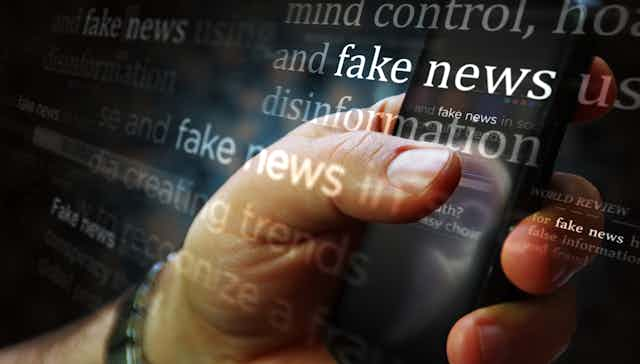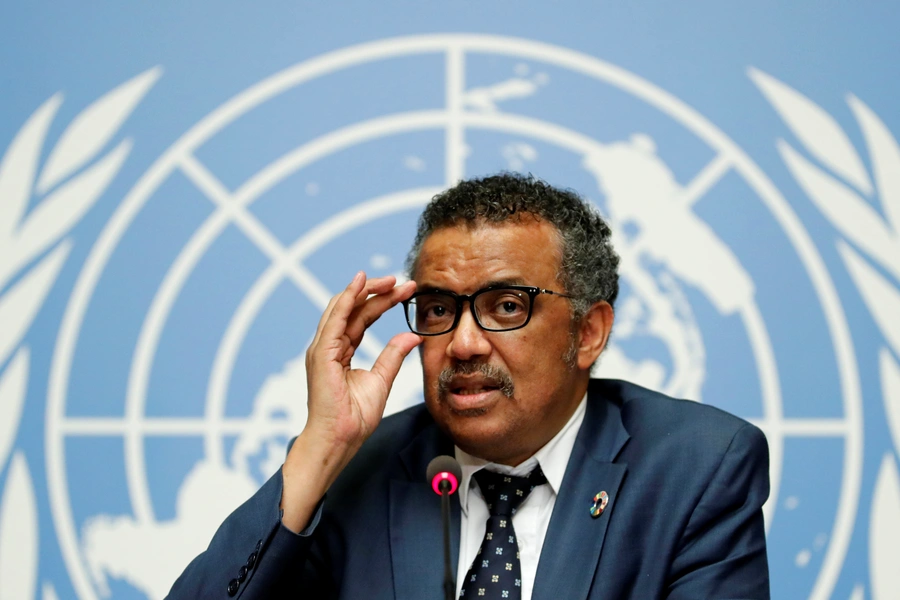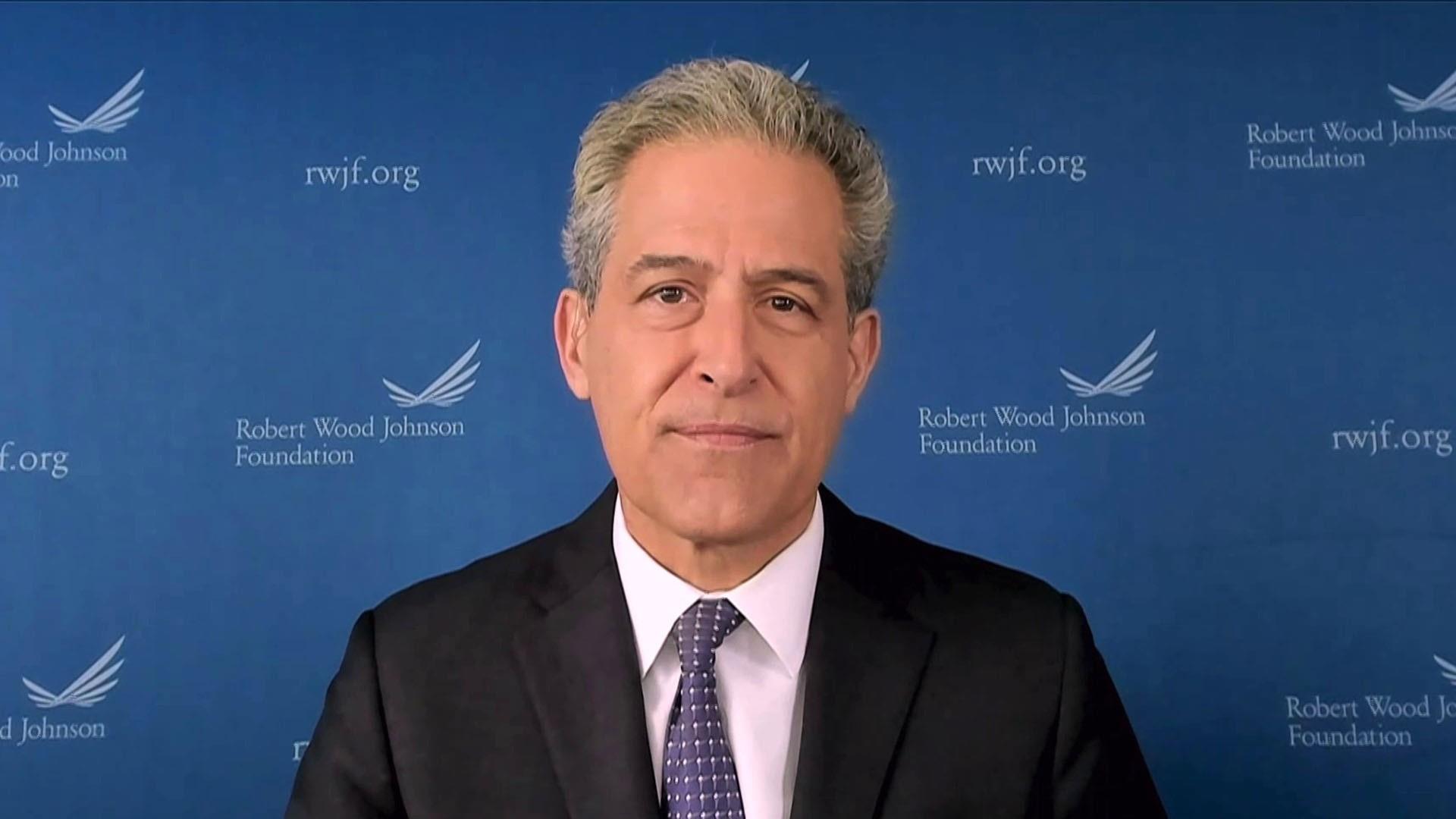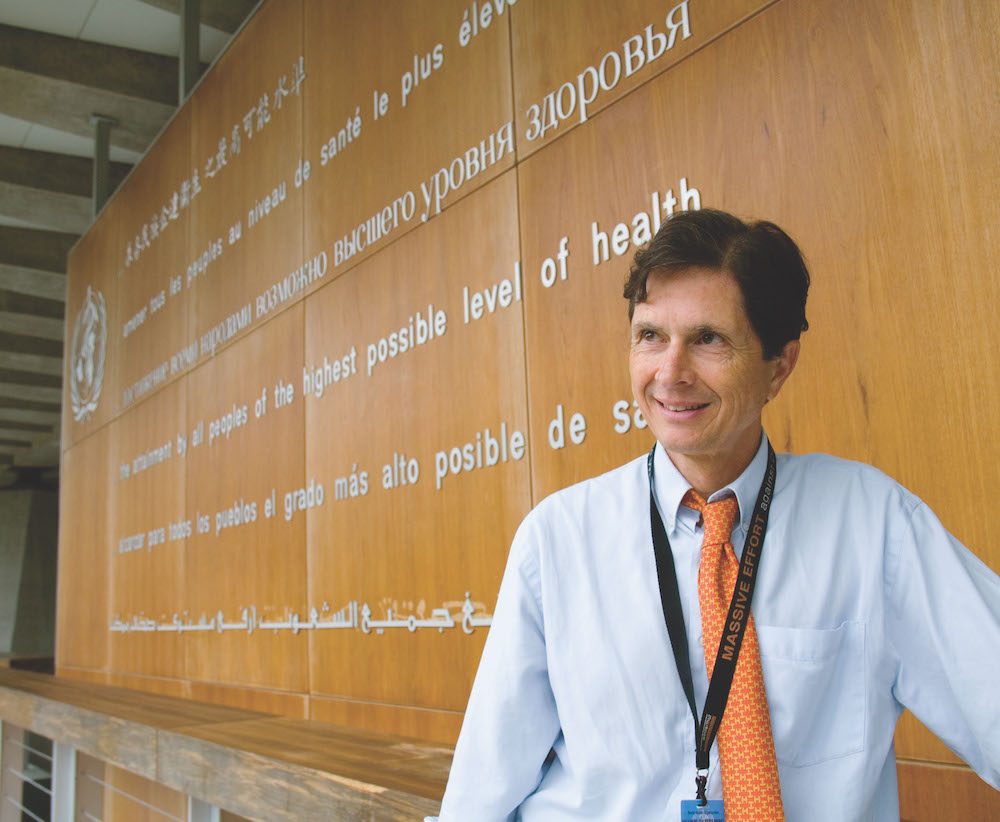The Economic Cost of Epidemic Misinformation and the Need for Response Funding for Effective Communication Strategies
By Adeyemi Adekunle

In the midst of an epidemic, misinformation can be just as deadly as the virus itself. Dissemination of false or misleading information can breed fear, hinder efforts to contain the outbreak, and ultimately lead to a loss of life. As the world grapples with the COVID-19 pandemic, the cost of misinformation has become more apparent than ever before. This will underscore the importance of prioritizing investments in effective communication strategies.
Effective communication during epidemics is crucial in minimizing misinformation and that can result in severe economic costs. Dr. Anthony Fauci, A former Director of the National Institute of Allergy and Infectious Diseases said “clear and transparent communication is essential in containing epidemics. Misinformation can lead to widespread panic among communities, causing a decline in tourism, decreased consumer spending, and a decline in the stock market. Information that is unclear or inconsistent can lead to mistrust in public health officials and government entities, causing people to resist being vaccinated or following other public health recommendations”.

The Director of the World Health Organization, Dr. Tedros Adhanom Ghebreyesus, on his path underscores the need for personalized messages to various communities to ensure that the information is understood and followed. Thus, funding for effective communication strategies during epidemics is crucial to prevent the economic costs of misinformation.
The prevalence of misinformation
The prevalence of misinformation during epidemics is a significant problem that can hinder public health efforts. According to a report published by the World Health Organization (WHO), the spread of false information during the Ebola epidemic in West Africa caused fear and panic, leading to increased transmission of the disease. Similar patterns emerged during the COVID-19 pandemic, with false information related to the virus’s origins, transmission, and treatment spreading rapidly over social media platforms. Experts suggest that the ease at which information can be shared through social media platforms has increased the likelihood of misinformation spreading widely. To address this issue, funding is needed to support effective communication strategies that can accurately convey information to the public, counter misinformation, and provide accessible and understandable information to the public.
The economic cost of misinformation

The consequences of misinformation also impact the economy, and the cost can be significant. In a 2018 study by the OECD, misinformation was estimated to cost the global economy at least $78 billion annually. In the context of epidemics, the cost of misinformation can be particularly high. Dr. Christina Pagel, Director of the Clinical Operational Research Unit at University College London, notes that the economic cost of misinformation during the COVID-19 pandemic includes “delayed lockdowns, delayed responses, lack of clarity on the rules, mistrust of governments, and so on. These cost lives, but they also cost money in terms of lost productivity and the economic costs of non-pharmaceutical interventions.” In order to reduce the economic impact of misinformation, effective communication strategies need to be developed and funded. This includes supporting public health campaigns, investing in fact-checking and media literacy programs, and ensuring that accurate scientific information is readily available to the public.
Experts agree that effective communication strategies are crucial in combating the economic cost of misinformation during epidemics.Dr. Jonathan Fielding, professor at UCLA School of Public Health, “lack of communication can be more dangerous than the virus itself.” In a survey, only 52% of respondents trusted information from public health agencies, with the majority relying on social media for information. This highlights the need for governments to fund clear and concise messaging from trustworthy sources. Dr. Larry Brilliant, epidemiologist and former head of Google.org, emphasizes the importance of using local ambassadors and trusted community leaders to disseminate important information. He also believes that investing in public health education, including media literacy, can help combat the spread of misinformation during epidemics. Ultimately, funding for effective communication strategies will be vital to limit the economic cost of misinformation during epidemics, saving lives and avoiding unnecessary economic losses.
Dr. Claire Wardle, an expert in media and information literacy, the economic cost of misinformation during epidemics could be astronomical. She argues that misinformation not only sow confusion and panic among the population, but they also undermine public trust in health institutions and authorities, leading to greater costs in the long term. In the case of COVID-19, for example, she pointed out that the spread of misinformation resulted in a delay in people taking the necessary precautions to prevent the virus’s transmission, which could have ultimately lowered the cost of healthcare services. Dr. Reddy, a physician, and health communication specialist, further stressed the need for well-resourced and coordinated communication strategies to combat misinformation for effective public health responses in epidemics. The economic cost of misinformation could be considerably reduced if the right communication strategies were put in place.
How misinformation during epidemics lead to economic loss?
Experts agree that the spread of misinformation during epidemics can have significant economic consequences. Dr. Melissa Harris-Perry, Professor of Politics and International Affairs at Wake Forest University, explains that misinformation contributes to the social and economic costs of epidemics. She emphasizes that misinformation leads to fear and panic, which results in decreased economic activity as people stay home from work or avoid public places out of perceived danger. Additionally, misinformation can create mistrust in government responses and medical interventions, which can lead to decreased vaccination rates and delayed receipt of medical care. These effects result in increased healthcare costs and lost productivity for individuals and businesses alike. Ultimately, Dr. Harris-Perry emphasizes that investing in effective communication strategies during epidemics can prevent economic losses by countering the spread of misinformation and promoting accurate information and proactive responses.
Need for funding for effective communication strategies

In order to combat the spread of misinformation during epidemics, it is critical that adequate funding be allocated towards implementing effective communication strategies. Dr. Richard Besser, President and CEO of the Robert Wood Johnson Foundation, said “In a time of crisis, timely, transparent, and accurate communication can make the difference in determining the trajectory of a disease outbreak.” This sentiment is echoed by Dr. Georges C. Benjamin, Executive Director of the American Public Health Association, who stresses the importance of investing in “community-based interventions that use culturally appropriate messages and community connectedness to stop the spread of rumors and panic.” Without proper funding for these initiatives, the consequences of misinformation can be devastating, from increased transmission rates to elevated levels of fear and anxiety. Thus, it is imperative that government and non-governmental organizations prioritize and invest in effective communication strategies during epidemics.
Effective communication during epidemics is crucial in fighting the spread of misinformation. The provision of accurate information can aid in preventing panic, reducing fear and enhancing trust in government and health authorities. However, funding for communication strategies during epidemics remains a perennial challenge in many countries. In an interview with Dr. Gemma Phillips, a professor of Health Psychology, she emphasizes the importance of funding for communication strategies during epidemics. She notes that funding can provide resources for both the development of effective communication strategies and the training of personnel. When speaking Dr. Tom Frieden, the former Director of the U.S. Centers for Disease Control and Prevention, said “funding for communication strategies during epidemics is necessary to monitor, evaluate, and improve communication strategies”. Therefore, funding for communication strategies during epidemics is crucial in breaking the chain of misinformation, enhancing public trust, and ultimately facilitating effective disease control measures.
Effectiveness of communication strategies and their impact on economic loss

Effective communication strategies have had significant impacts on mitigating the economic loss caused by misinformation during epidemics. Experts in health sector emphasize that timely and accurate information dissemination is essential in controlling the spread of infectious diseases and minimizing unnecessary disruptions to the economy.
Dr. John Brownstein, Chief Innovation Officer at Boston Children’s Hospital, states that “effective communication strategies must prioritize transparency and honesty, as they foster public trust and encourage compliance with public health measures”.
Similarly, Dr. Kristin Hendrix, an Assistant Professor of Communication at the University of Nevada, emphasizes the importance of tailoring communication strategies to specific audiences to ensure maximum reach and effectiveness. “By investing in evidence-based communication strategies, such as targeted educational campaigns and community-based interventions, policymakers can minimize economic loss and protect public health during epidemics” he said.
To Dr. Gary Schwitzer, an adjunct associate professor at the University of Minnesota School of Public Health, speak about his concern that “misinformation can erode public trust and confidence in public health authorities and institutions, leading to negative impacts on health behaviors, vaccination rates, and overall public health.” This erosion can have significant economic costs, including increased healthcare spending, decreased productivity due to illness, and lost revenue from decreased tourism and business activity. In addition to the economic costs, misinformation and during epidemics can also lead to increased morbidity and mortality. Dr. Bertrand Liang, CEO of the healthcare technology company PHEMI, emphasizes the need for targeted communication strategies in order to combat this problem. He suggests “centralizing the messaging and focusing on communicating objective, clear, and consistent information to the public” as a key strategy for mitigating the economic and human costs of misinformation during epidemics.
Funding availability for communication strategies during epidemics
Michael Osterholm, director of the Center for Infectious Disease Research and Policy at the University of Minnesota, mentioned that one of the key issues during an epidemic is the availability of funding for communication strategies. Osterholm highlights that while agencies such as the Centers for Disease Control and Prevention (CDC) handle a large share of funding, smaller agencies or organizations often struggle to secure funding for effective communication strategies. The lack of resources can hinder the efforts of community organizations, non-profits, and individuals to spread accurate information and combat misinformation. The situation is further exacerbated by the prevalence of social media, which makes it easy for rumors and false information to spread widely and quickly. As such, experts stress the need for increased funding for communication strategies, especially at the grassroots level. By supporting community efforts and ensuring accurate information is consistently communicated, it is possible to mitigate the economic cost of misinformation during epidemics.
In addition to the direct health impacts of epidemics, misinformation can have severe economic consequences. Dr. George Hill of the University of Chester,pin-points that false information can fuel panic and irrational behavior, leading to unnecessary spending and disruptions to supply chains. When people hoard goods like hand sanitizer and masks, it creates shortages and drives up prices, which can disproportionately affect low-income communities. Dr. Marc Lipsitch of the Harvard T.H. Chan School of Public Health warns that one the havoc misinformation could wreck is to lead people to ignore public health advice, which can prolong epidemics and make them more costly in the long run. It is clear that investing in effective communication strategies is crucial for mitigating the economic consequences of epidemics and preventing the spread of misinformation.
Investing in effective communication strategies during epidemics is critical to mitigate the economic cost of misinformation on public health. The rapid spread of false information in today’s digital world can cause panic and mistrust in governments and health authorities, resulting in the disruption of crucial health interventions and continuity of business operations. Therefore, the importance of funding communication efforts to counter misinformation during epidemic outbreaks cannot be overstated. There is need for a coordinated, cross-sectoral approach to communication that involves governments, industry players, civil society, and media outlets. Such an approach requires funding, not just for specific communication campaigns but also for public education programs that foster critical thinking and media literacy skills. Ultimately, the investment in effective communication strategies is an investment in public health and economic stability during epidemic outbreaks.
The route to effective communication during epidemics

Effective communication is crucial during an epidemic as it allows timely dissemination of accurate information to the general public, healthcare providers, and policymakers. Ineffective communication may lead to fear, panic, and mistrust which may result in non-adherence to preventive measures or inappropriate management of the disease. In an interactive section with Professor. David Heymann from the London School of Hygiene and Tropical Medicine, during the Ebola outbreak in West Africa in 2014, “an inefficient communication strategy led to misinformation and rumors which slowed down the response and contributed to the spread of the disease.” Effective communication involves using different mediums such as social media, traditional media, and community engagement to reach a diverse audience. Dr. Adaora Adimora, an infectious disease specialist at the University of North Carolina, emphasizes the need for clear and concise messaging tailored to the local population’s cultural and linguistic needs. Ultimately, effective communication during epidemics is critical for preventing the spread of disease, building trust, and promoting public health. The most crucial aspects of combating misinformation during epidemics is effective communication. However, this requires comprehensive funding for communication strategies that can educate communities and dispel falsehoods. Dr. David Lazer, a network science expert at Northeastern University, expressed that “We need to think of communication as a public good, one that provides societal benefits beyond individual benefits.” while Axios, Terry Flew, a professor of communications at the Queensland University of Technology, also emphasized that “there is a need for substantial public investment in the creation of public information campaigns to counter the influence of misinformation”.
Therefore, it is critical for governments and organizations to allocate sufficient resources towards developing and implementing communication strategies that can effectively transmit accurate information during an epidemic. Without proper funding, misinformation will continue to spread, adversely impacting public health and economic outcomes. Tackling misinformation during epidemics is crucial for economic recovery. Failing to address this problem can lead to major economic consequences, including disruption of trade, supply chains, and loss of consumer confidence. Its negative impact extends beyond the outbreak response period and may last for years to come. To mitigate the harmful effects of misinformation its required that effective communication strategies it’s in place that is backed by proper funding. Dr. Joanne Liu, former International President of Doctors Without Borders, reacted that “we need to invest in communication as an essential public health tool, like vaccines, or quarantine measures.” Governments, international organizations, and the private sectors must come together to fund and implement communication strategies that prevent the dissemination of false information, raise awareness, and promote evidence-based interventions. This will not only help control the spread of epidemics but also minimize the negative impact on economies.
This report was produced under the Nigeria Health Watch, Prevent Epidemic and Response Funding Fellowship 2023

A Nigerian trained investigative journalist, who cover various news beats in Nigeria.








